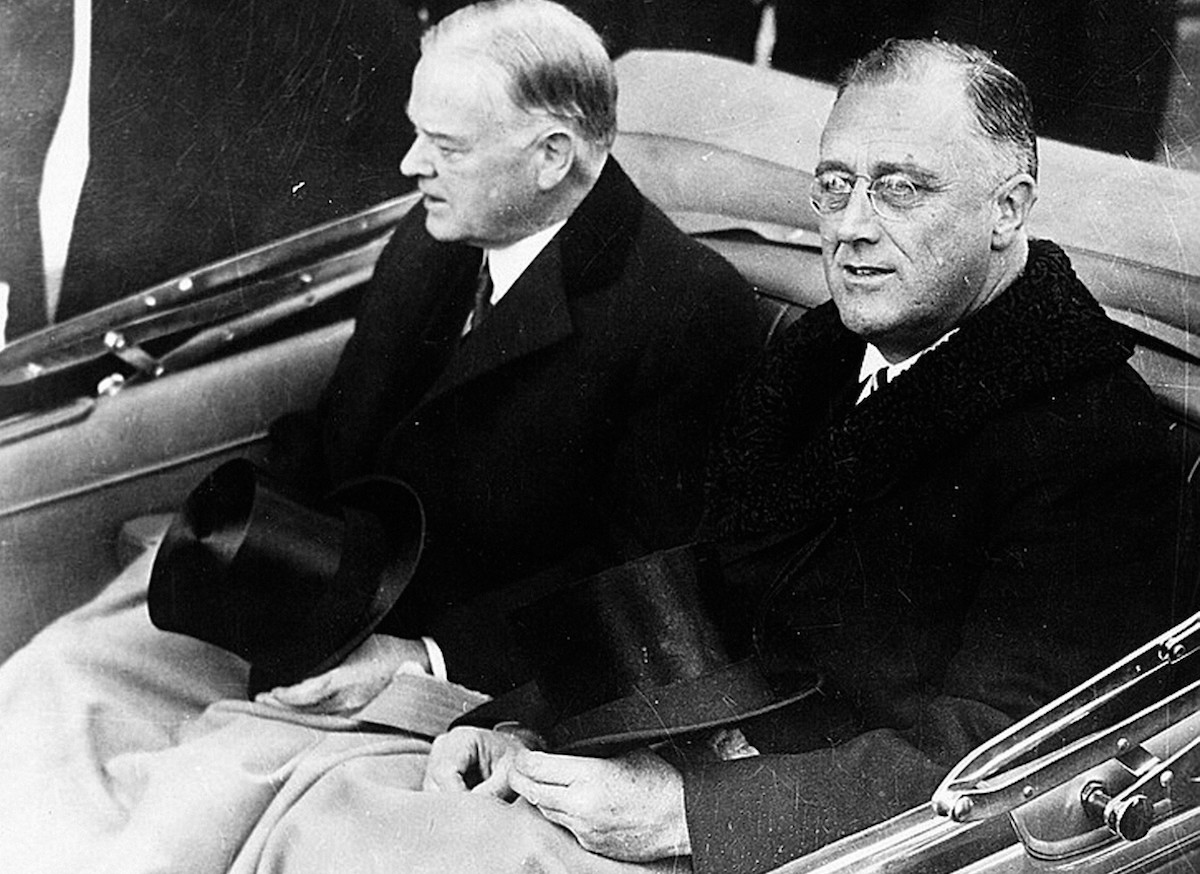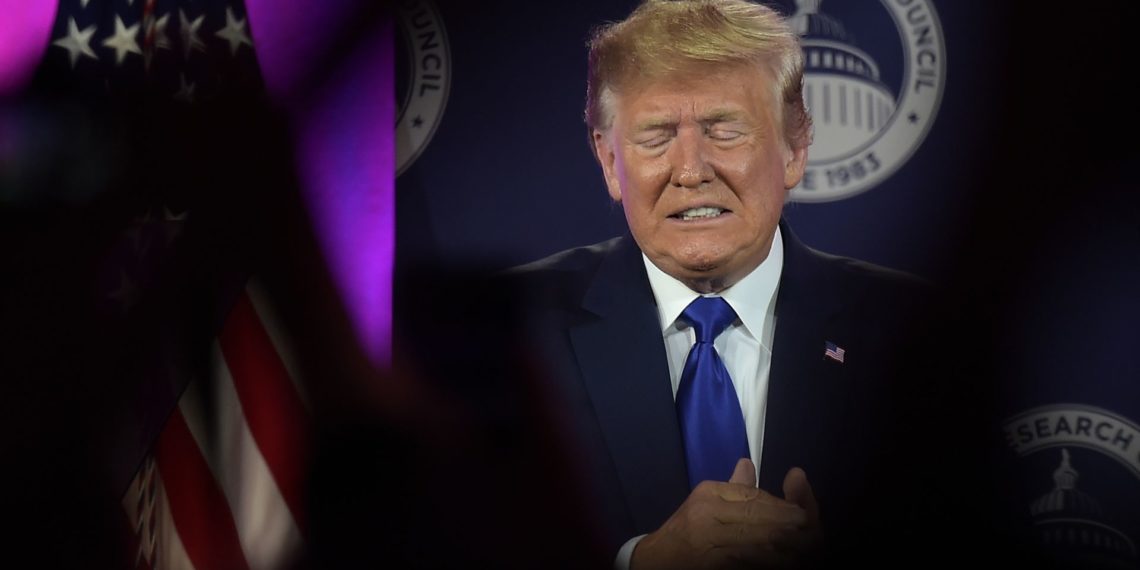Presidential power varies in space and time. I have previously demonstrated that as presidents approach the end of their terms, their power begins to slip away. If that is true, then the same should be true for presidents who appear to be losing.
As of now, it appears that President Donald Trump is going to lose his bid for reelection. Of course, that can change, but with the election approaching and the size of the gap that exists in the polls, the more likely it is he leaves office on a date certain. Consequently, he begins to lose power.
This occurs for several reasons. For one thing, at the end of their term, presidents make promises they cannot keep and threats they cannot carry out, and a politician without the power to bargain isn’t much of a politician indeed.
Furthermore, the deliberateness of the policymaking process, reinforced by the separation of powers, makes quick, dramatic changes in the law almost impossible, especially when the president is low in the polls as Trump is now.
The question then is, what does the president do? And what about his opponents?
Roosevelt and Hoover
In 1932, Franklin Roosevelt won a massive victory against an incumbent president. In those days, the inauguration was in March, not January as it is now. Consequently, even after the election, Herbert Hoover still had roughly four months left in office. The economy was in shambles, and while Hoover didn’t have the tools to do anything about it, he did have some ideas and wished to recruit the president-elect to his cause.
But Roosevelt would have none of it. America’s new president had his own ideas, and they had nothing to do with balancing the budget and protecting the Gold Standard (in which the dollar’s value is directly linked to gold), two Republican nostrums of the time.
Hoover begged Roosevelt to join a united front in support of reforms that Hoover favored. From correspondence Hoover had with a friend, we know now that the president was trying to lock Roosevelt into policies that would make the New Deal all but impossible. Roosevelt listened but refused to go along.

In the meantime, Roosevelt communicated to Democratic members of Congress that nothing was to proceed in the legislative process without the permission of the president-elect. Thus, the only significant thing that Congress did during the transition was to pass the 21st Amendment, the repeal of Prohibition.
On inauguration day, Hoover and Roosevelt barely spoke. Hoover was furious and believed that Roosevelt had exacerbated the Depression to make himself look good by contrast. Behind the scenes, however, Roosevelt had asked senior members of the Hoover Treasury Department to stay on and prepare for what become known as “the first 100 days.” The new Roosevelt Administration was able to hit the ground running, and Hoover holdovers were integral to the mix.
I bring this up to point out that we are not helpless over the next seven months, the time that Donald Trump may have left in office. And the Roosevelt story is not unique. In the final months of the Andrew Johnson administration (in 1868 Johnson was denied his party’s nomination), Ulysses Grant set up a government in waiting that was every bit as influential as the government in the White House.
The Administrative State
One major difference between 1932 and now is that the Federal Government is much more top-heavy in Federal Bureaucracy. While there are three basic classes of the policymaking function – legislation, rulemaking, and presidential edict – perhaps the most important at this time is in the role of the administrative state.
In the current environment, with the Democrats in control of the House, no legislation is going to pass that doesn’t have the imprimatur of the Democratic leadership. To be sure, Senate Republicans can still confirm Federal judges, but given the time left and the fact that most appointments end with the presidential term, the rest of the appointment power is essentially meaningless.
Rulemaking is also basically over for now. Absent an act of Congress, the only way that a policy can be changed is through changes in Federal Regulations, known as the Federal Code, or by Executive Order. Rules changes must be cleared through a process mandated by the Administrative Procedure Act. As a practical matter, rules changes adopted through the regular process take months and sometimes years. And that’s a good thing too, as rules changes become the applied interpretation of the law.
Thus, no new controversial rules changes will take effect given the time left in the first term of the Trump administration. And, just to add, it is as difficult to reverse an existing regulation as it is to adopt a new one. For example, the president doesn’t really have the power to reverse the rule on the treatment of transgender persons through Obamacare. He violates the Administrative Procedure Act as he is likely to find out.
President Can’t Rewrite the Law
Executive Orders are presidential proclamations that carry the force of law, but only until the president leaves office. But they must follow the law. For example, at the outset of the Korean War, President Harry Truman tried to head off a labor strike against the American Steel Industry by issuing an Executive Order seizing the steel mills. He argued that the United States was at war and that the government’s action was in pursuit of a national security goal.
The Supreme Court disagreed. The president, a 6-3 majority of the Court ruled, had no legal authority to seize the mills. Thus, the president can’t write the law absent a regulation or an act of Congress.
That being the case, it is incumbent on the Federal Bureaucracy to not only ask for clarification and legal basis of presidential orders, but it is required of them to refuse to carry out illegal orders. Just last month, regarding the recent street protests, the military signaled its commitment to its constitutional role. In other words, the military made it clear that it would not act as the praetorian guard for the Trump administration. The rest of the bureaucracy should commit to the same.
Federal Employees indeed put their jobs at risk if they refuse to carry out illegal or questionable presidential orders. But should Joe Biden win the presidential election, it might be useful for him to state that as soon as he is sworn in, he will empanel a Federal Reinstatement Board to reconsider the dismissal of any Federal Employees during this period.
When and if the president loses, he will still have 11 weeks left in his term. My advice to him is to go play golf and cooperate in the transition. For the president-elect, I have some other advice. More on the transition later.
Disclaimer: The views and opinions expressed here are those of the author and do not necessarily reflect the editorial position of The Globe Post.






















